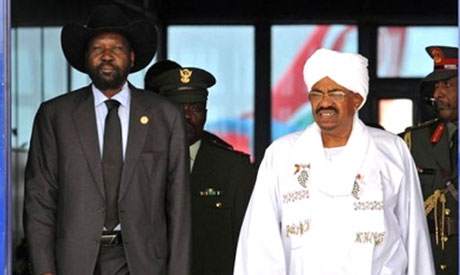CAIRO: Egypt’s Minister of Water Resources and Irrigation Hisham Kandil said on Saturday that Egypt, Sudan and the Congo will not sign the Nile Water Framework Convention, known as the “Entebbe Agreement,” except in case of meeting the needs and interests of the three countries, “particularly as it is not binding.”
Kandil said that the relations between Egypt and the Nile Basin countries are “witnessing a remarkable development in the framework of bilateral cooperation and the technical expertise and funding Egypt grants to support these countries in the development of their societies, as long as they do not conflict with Egypt’s water interests.”
He added that he discussed with his Ethiopian counterpart on the sidelines of the annual “Nile Day” organized by the Nile Basin (NBI) in Uganda last week, the position of the work of the Tripartite Commission to assess the Ethiopian Renaissance Dam
He stressed the need to continue the communication with Nile Basin countries, and added that he is expected to hold a meeting with the Tanzanian Minister of Water to discuss Tanzania’s needs for “experience and aid for the establishment and operation of wells for groundwater to provide domestic needs for water for the benefit of local communities.”
He continued: “Egypt agreed on the construction of the Bujagali dam in Uganda in 2000, after technical studies proved that Egypt water security will not be affected.”
Egypt and Sudan are both concerned over the controversial historical agreements that continue to deliver them the lion’s share of water from the Nile River. In late December, the two countries’ water officials met in the Egyptian capital, looking to continue their hegemonic status atop Nile water.
According to Egypt’s state-run MENA news agency, Egypt’s Kandil and Prime Minister Kamal al-Ganzoury met with Sudan’s ambassador to Egypt Kamal Hassan Ali to continue to push forward on agreements concerning the Nile Basin Initiative – the mechanism by which Nile water is delineated among the member states along the world’s longest river.
The meeting reportedly discussed the overall situation in the countries of the Nile Basin with a focus on the outcome of the meeting earlier between the Egyptian and Sudanese delegations and the decisions taken.
The encounter also touched on bilateral relations between ministries of water resources in Egypt and Sudan as well as ways to achieve cooperation between the two countries and to unify visions on pending issues of the countries of the Nile Basin.
No mention of Ethiopia or negotiating with the upstream countries was mentioned, leaving many officials south of Sudan worried that Khartoum and Cairo would not enter into any discussion over future changes to water agreements.
According to Minister Hamad, the Egyptian Prime Minister has directed the Minister of Water Resources and Irrigation “to provide technical assistance and training to the Sudanese center for water resources and irrigation. A range of economic issues between the two countries have also been discussed especially in the fields of roads and electricity,” he added, and affirmed the “keenness of the Egyptian Government to provide required support for all economic projects between the two countries.”
A tripartite committee was set up comprising experts from the countries with a view to form a mechanism to discuss and reach understanding on the issues on the table including criteria for selecting international experts.
But not all is well in the Nile Basin, with other member states demanding Egypt and Sudan give up their dominance of water rights and have demanded an end to over a half-century old treaty established under British colonial rule that allows Egypt more than 80 percent of all water.
In Egypt, there are worries that giving up its rights would bring about a massive water shortage in the country that could have detrimental social and political affects on the country and have not budged from amending previous agreements, angering upstream nations, especially Ethiopia, which has gone forward with plans for a massive dam along their portion of the Nile to generate electricity.
BM











